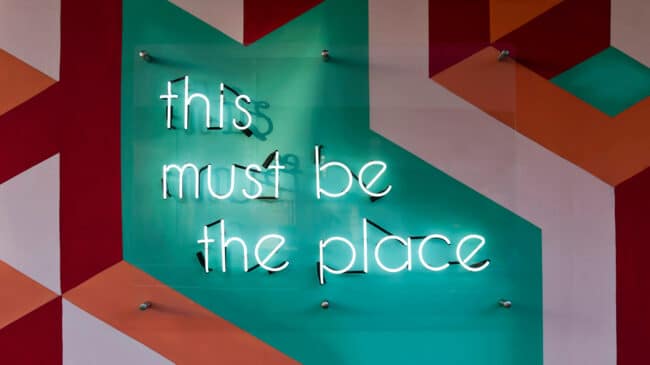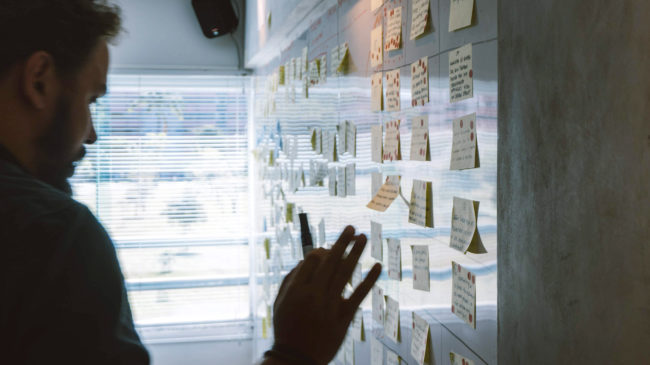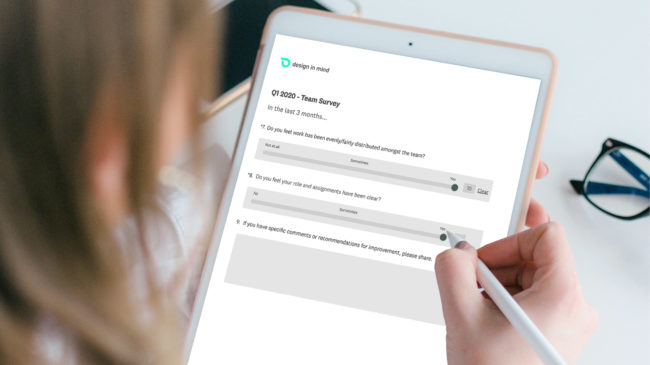10 tips to be a better teammate, even remotely

No matter your role, your industry, or the size of your company, it’s important to be a team player. Striving to improve your professional relationships can help you feel more connected, productive, and content with your job—which is especially crucial when working remotely. In fact, becoming a better teammate can help counteract the downsides of leaving the office, like loneliness and miscommunication.
As a small creative agency, we know how important teamwork is to our success. Read on for our top tips to becoming a better team player.
1. Always lead with respect.
Respect is at the crux of every professional relationship. In a collaborative environment, this means listening deeply, being open to ideas, and keeping empathy and consideration top-of-mind. When you respect others, they respect you back, making it a quick path to better rapport.
2. Embrace collaboration.
Collaboration requires understanding, supporting, and actively working toward a common goal. Though important across industries, collaboration is particularly crucial in creative fields, and imperative to maintain while working remotely. To show up fully and work well with your team, be prepared to listen, ask thoughtful questions, bring ideas to the table, and contribute your unique skills and talents to every project.
3. Provide honest feedback.
Sugarcoating your feedback might feel polite, but teams thrive on constructive criticism.
Sharing your honest opinion (nicely, of course), will help others find areas to grow. Also, diverse perspectives are critical to finding creative solutions, so don’t be afraid to speak up. When you’re on the receiving end of feedback, remember not to take things personally—chances are your teammate has your best interests at heart.
4. See people for their strengths.
Remember: everyone brings something to the table. Actively find ways to appreciate and recognize your teammate’s strengths—not only will this help people feel more validated and appreciated, but it can enhance efficiency by delegating the right tasks to the right people. In this way, playing to each other’s strengths benefits the entire team.
5. Admit when you’re wrong.
Everyone makes mistakes, so don’t be afraid to own up to them. Learn to put your ego aside and admit when you’re wrong, and never place the blame on someone else. Rather than making you look bad, admitting your faults can actually help earn you respect among colleagues. Even more importantly, it sets a precedent for others to admit when they don’t know the answer and creates opportunities for you to learn from each other.
6. Celebrate team wins.
It’s important to celebrate the team’s success. Whether a major project milestone or a small-feat-gone-well, recognizing individual contributions helps build company spirit and lets people know their hard work is being noticed. When working on a dispersed team, celebrations can be as simple as a quick Slack, heart-felt email, or well-placed emoji. Simply take time to recognize a job well done; it’s truly the thought that counts.
7. Ask, “How can I help?”
Good teammates are willing to help out when asked, but great teammates don’t hesitate to extend a hand early and often.
This is especially important to remember in stressful situations, when it’s all too easy to get overwhelmed. Offering assistance will help alleviate the pressure, show that you’re dependable, and prove your commitment to the team’s success.
8. Respect others’ time.
When you’re working in a collaborative environment, it’s important to do your part to keep work on schedule. There’s a good chance that dropping the ball by missing deadlines or frequently rescheduling meetings can throw someone else off-track or add stress to a project. If something does come up (we’re all human), communicate ASAP to prevent a bottleneck—your teammates will appreciate knowing what to expect.
9. Bring a positive attitude.
Positivity is contagious. Particularly when facing a challenge, staying optimistic can alleviate frustration and help you and your teammates enjoy the process. Recognize your teammates’ hard work and the project pieces that are going well in order to empower others, boost morale, and find the fuel to keep going. If nothing else, remember that the project’s finish line will be in sight before you know it.
10. Make time for the social stuff.
Lastly, never underestimate the power of a good happy hour. Getting to know each other off-the-clock—even through Zoom—can pay off in improved communication, greater team spirit, and a sense of belonging. When you’re feeling screen fatigue and burnout, socializing should still remain a priority. The payoff? On the days when you *just cannot even,* you’ll know you have a shoulder to lean on.

























